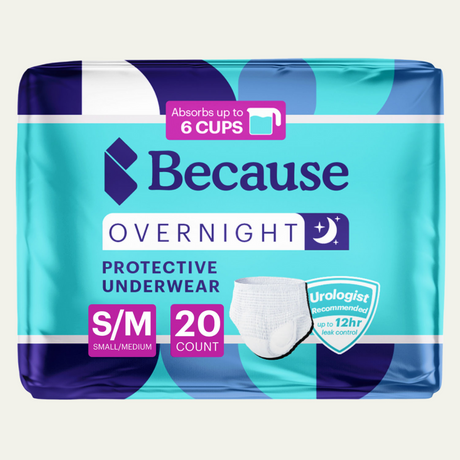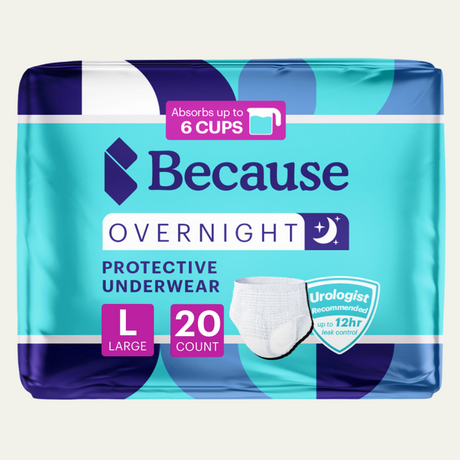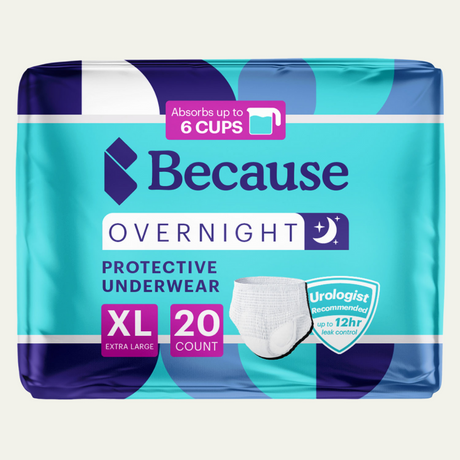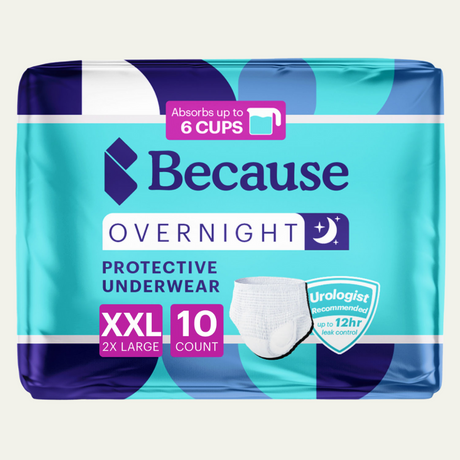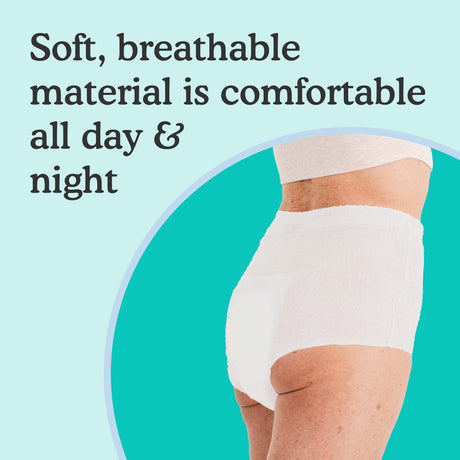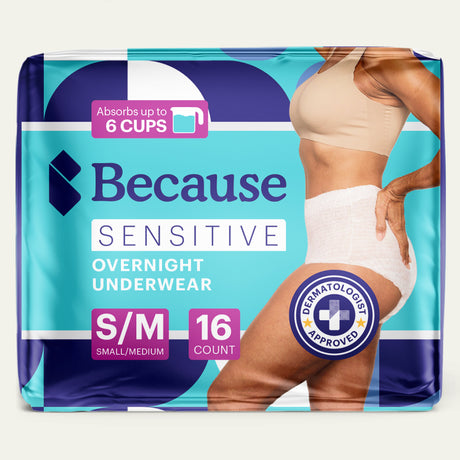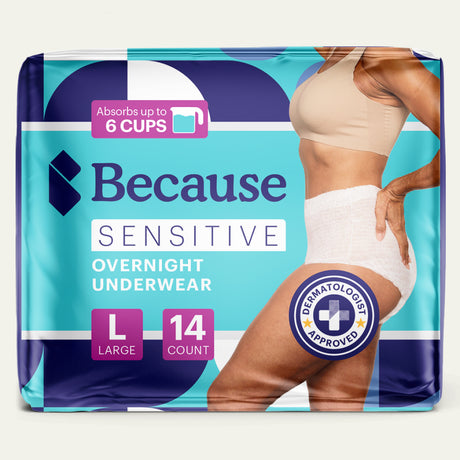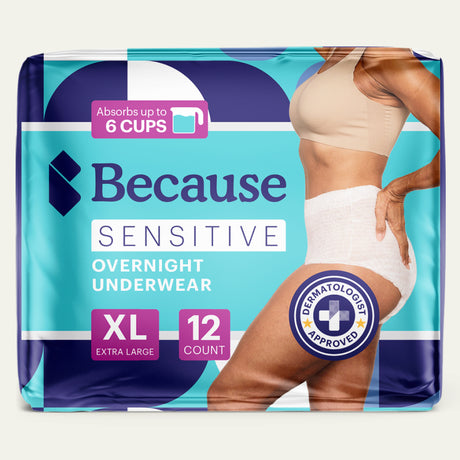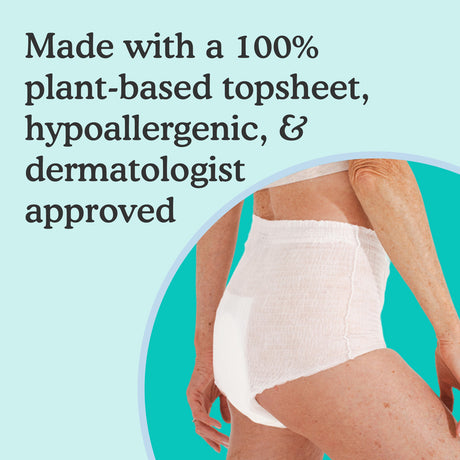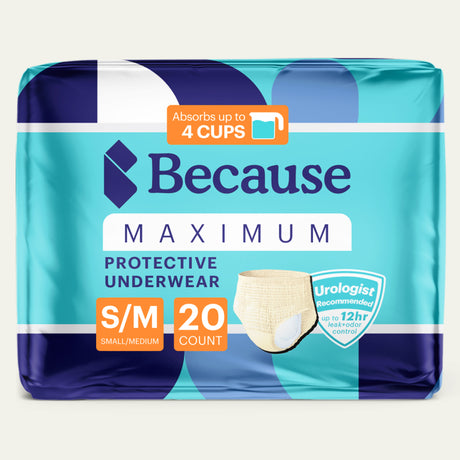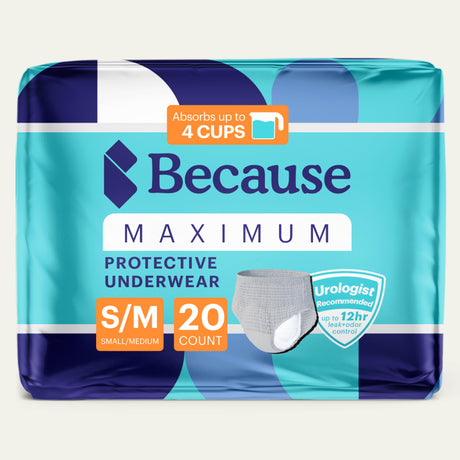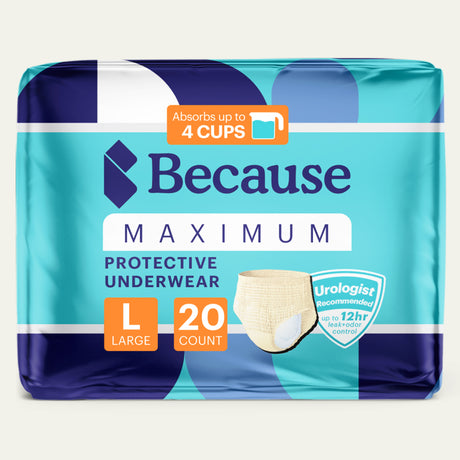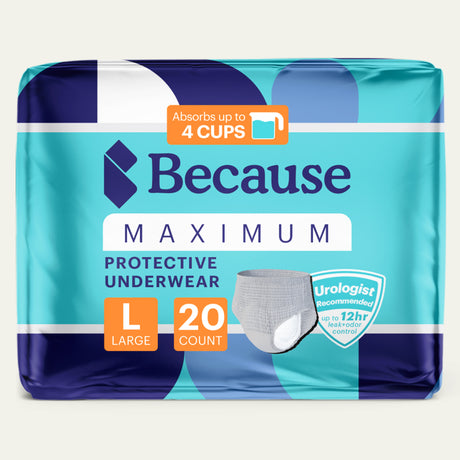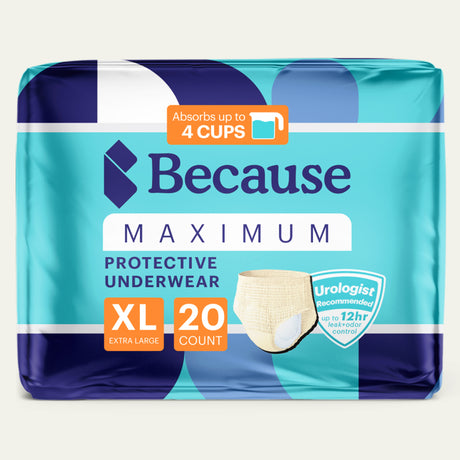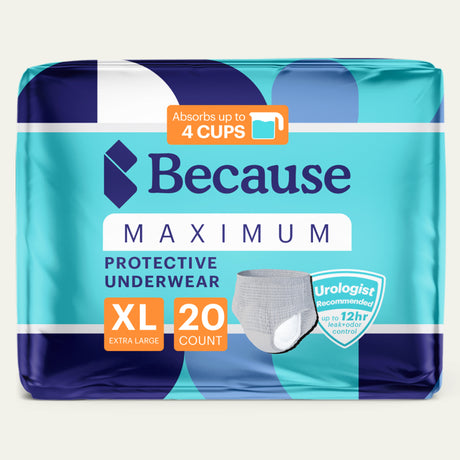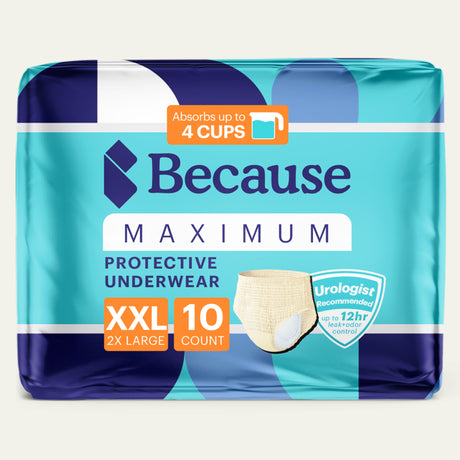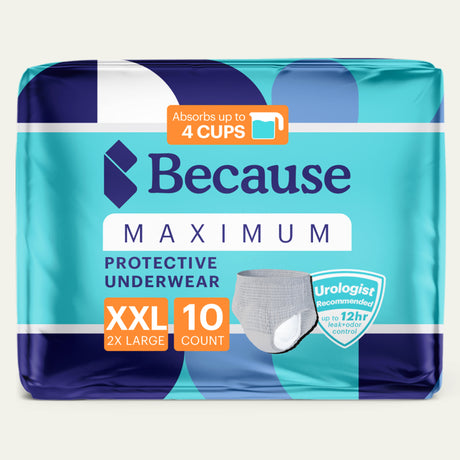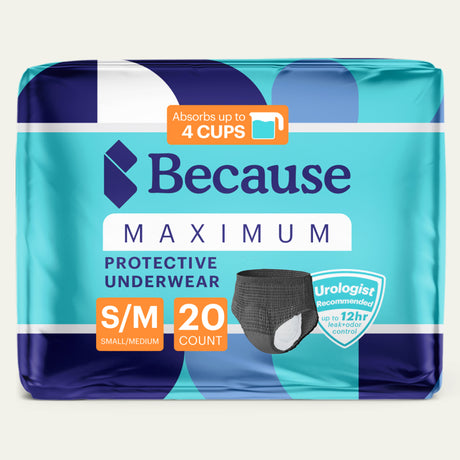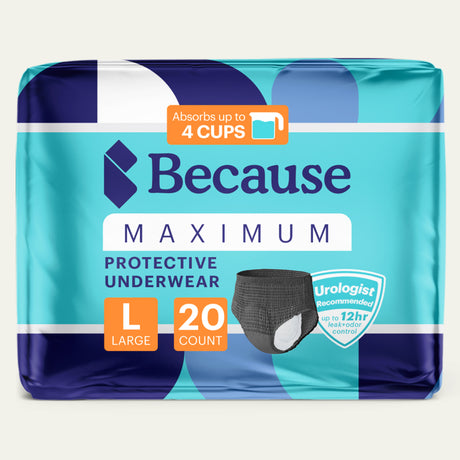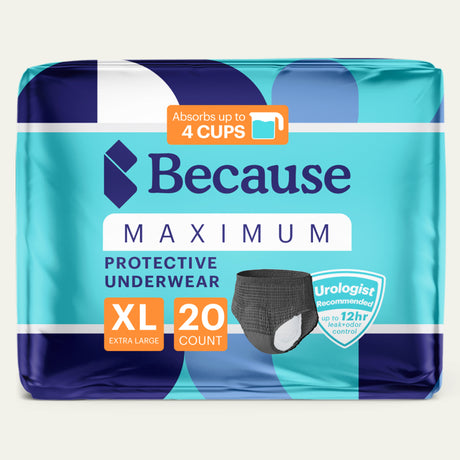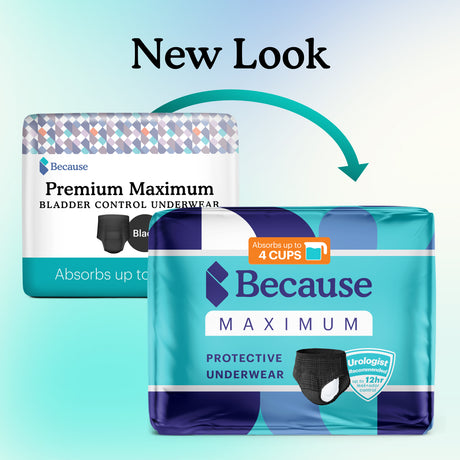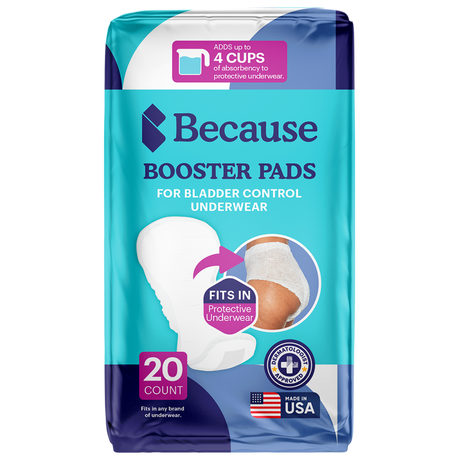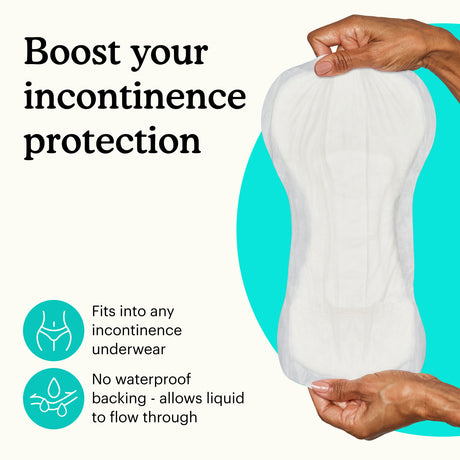42% of men over 75 experience incontinence, but urinary incontinence is still rarely talked about. Male Incontinence pads, also known as guards, are an incontinence product that are often not talked about, but are specifically designed for the male body. These male-specific pads provide discreet, less bulky coverage to men suffering from bladder leaks. Effectively managing incontinence is a practical consideration for many men, and the use of male incontinence pads is a crucial aspect of that management.
In this blog, we delve into the pragmatic side of incorporating these pads into daily life, focusing on practical tips and information to enhance your experience. Whether you're a seasoned individual navigating incontinence or a newcomer seeking guidance, this guide aims to provide a clear, informative resource on how to wear male incontinence pads with efficiency and ease.
Join us as we strip away misconceptions and explore the functional aspects of integrating these pads into your routine, allowing you to confidently engage in life without unnecessary disruptions.
How to Wear Male Guards Correctly
Ensuring the proper use of male urinary incontinence pads is not only fundamental for effective management but also for maintaining comfort and confidence in daily activities. In this section, we will break down the essential steps to wear male incontinence pads correctly. From choosing the right type to positioning and securing the pad, each step plays a crucial role in optimizing their functionality.

Correct Placement of Male Incontinence Pads
Correct placement of male urinary incontinence pads is paramount for their optimal performance. The pad should be positioned securely within snug-fitting underwear to prevent shifting during movement.
Ensure that the guards' wider end is at the front, providing ample coverage where it's needed most. For those who prefer a more discreet option, specialized pouch briefs designed to hold the pad in place are available.
It's crucial to pay attention to individual anatomy and adjust the placement accordingly, making sure the pad covers the entire target area. Regular checks and adjustments throughout the day will help maintain comfort and effectiveness.
Securing the Male Guard for Optimal Comfort and Effectiveness
Start by ensuring that the chosen underwear fits snugly, holding the pad securely in place. Many manufacturers provide adhesive strips on the back of the pad for additional stability. Smooth out any wrinkles or folds in the pad to prevent discomfort and potential leaks. For those preferring a more integrated solution, specialized pouch briefs can be utilized, providing a secure pocket for the pad. It's crucial to strike a balance between a snug fit and avoiding overly tight undergarments, as the latter may compromise comfort.
Tips for Changing Male Incontinence Guards Discreetly
Firstly, it's essential to be prepared by having spare pads and a discreet disposal method readily available. Choose a private and well-equipped space to conduct the change, whether it's a restroom or a designated changing area. Consider using cleansing wipes or no-rinse cleansing spray for a discreet and efficient cleanup.
Utilizing odor-control products can further enhance the discreteness of the process. When changing in public facilities, carrying a discreet bag or pouch for spare pads ensures a seamless transition. Timing is also crucial—choosing moments when restrooms or changing areas are less crowded can help maintain privacy.
By incorporating these tips into the routine, individuals can navigate the process of changing male incontinence pads discreetly, fostering a sense of control and normalcy in their daily lives.
The Best Underwear to Wear with Male Incontinence Pads
Selecting the right underwear is pivotal for optimizing the performance and discreteness of male incontinence pads. Pull-up briefs or boxer briefs made from breathable, moisture-wicking fabrics, such as cotton or moisture-resistant blends, are highly recommended. These materials aid in managing moisture, reducing the risk of skin irritation.
Additionally, choosing underwear with a snug but not constrictive fit helps secure the male guard in place, preventing shifting during movement. Some brands offer specialized pouch briefs designed to accommodate incontinence pads, providing an integrated and secure solution.
Ultimately, the best underwear is one that combines comfort, functionality, and a discreet design, allowing individuals to go about their day with confidence and peace of mind. Experimenting with different styles and brands can help find the perfect match for personal comfort and incontinence management needs.

The Importance of Skincare and Hygiene
Maintaining optimal skincare and hygiene is paramount when it comes to wearing male guards comfortably. The prolonged contact between the skin and moisture from incontinence can lead to irritation and discomfort. Regularly changing the male guards and keeping the perineal area clean is crucial in preventing skin issues.
Choosing incontinence pads with breathable materials and using fragrance-free wipes for gentle cleansing can further mitigate the risk of irritation. Adequate drying of the skin before applying a new pad is essential to prevent excess moisture. Moreover, incorporating a skin-friendly barrier cream can act as an extra layer of protection, reducing the likelihood of chafing and promoting overall skin health. By prioritizing skincare and hygiene practices, individuals can ensure a more comfortable and dignified experience while managing male incontinence.
How Often to Change Male Incontinence Pads
The frequency of changing male incontinence pads is a crucial aspect of effective management. While the specific duration may vary depending on factors such as individual needs, the type of urinary incontinence pad used, and the level of urinary incontinence, in general it is best to change the pad every time it is soiled. When a pad is soiled and remains in contact with skin, the excess moisture and urine can lead to skin irritation and odor. Additionally the more soiled a pad becomes, the more likely it will be to leak, sag, or rip which could lead to uncomfortable accidents.
Individuals with more severe incontinence may need to change pads more frequently. Regular checks and adjustments ensure that individuals can confidently go about their daily activities with the assurance that their incontinence is effectively managed while maintaining comfort and hygiene.

How to Dispose of Male Incontinence Pads Correctly
Disposing of male incontinence pads correctly is not only a matter of hygiene but also a consideration for environmental responsibility. After changing a pad, it should be carefully rolled or folded and securely wrapped in its original packaging or a small plastic bag to contain any odors.
Disposal in a designated bin, preferably one with a lid, ensures containment until it can be properly discarded. For those on the go, carrying discreet, sealable disposal bags can facilitate easy and odor-controlled disposal. It's important to avoid flushing incontinence pads down the toilet, as they may lead to plumbing issues.
How to Choose the Best Male Incontinence Pads for You
Understanding Size and Fit
Pads come in various sizes and selecting the right one depends on individual needs and preferences. It's crucial to consider both the length and width of the pad, ensuring it provides adequate coverage without being overly bulky. A snug fit within supportive pull up underwear helps prevent shifting during daily activities. Experimenting with different brands and styles can help identify the most comfortable and secure option.
Additionally, paying attention to sizing charts provided by manufacturers can guide individuals in choosing the appropriate pad for their specific requirements. Ultimately, a well-fitted male incontinence pad not only enhances functionality but also contributes to a more discreet and confident experience in managing incontinence.
Different Levels of Absorbency
Male incontinence pads come with various levels of absorbency to cater to different needs and degrees of incontinence. Understanding these absorbency levels is crucial for selecting the right pad for optimal protection. Light absorbency pads are suitable for occasional leaks or minor dribbles, offering discreet and comfortable wear. Moderate absorbency pads are designed for individuals with more regular or moderate incontinence, providing increased protection without sacrificing comfort. Heavy absorbency pads are ideal for those with significant or continuous leakage, offering maximum protection and ensuring confidence throughout the day or night.
Choosing the appropriate level of absorbency is essential to prevent leaks, maintain skin health, and ensure overall comfort. Assessing personal needs and consulting with healthcare professionals can guide individuals in finding the most effective and comfortable male incontinence pad for their specific requirements.

Material and Comfort
The choice of material plays a pivotal role in determining the comfort and effectiveness of male incontinence pads. High-quality products are typically crafted from soft, breathable fabrics that wick moisture away from the skin, reducing the risk of irritation and promoting overall comfort. Look for pads with advanced absorbent cores made from materials like cotton, gel, or polymers, which efficiently lock away moisture while maintaining a dry surface against the skin.
The outer layer of the pad should be gentle and discreet, contributing to a comfortable wearing experience. Opting for pads with breathable and hypoallergenic materials further ensures that the skin remains healthy and irritation-free. When assessing comfort, it's essential to consider personal preferences and sensitivities, as finding the right balance of material and design is integral to a positive and confident experience while managing male incontinence.

Can You Wear a Male Incontinence Pad to Bed?
Wearing a male incontinence pad to bed is a practical solution for those managing nighttime incontinence. These pads are specifically designed to offer extended protection and absorbency, allowing individuals to sleep comfortably without the fear of leaks or disruptions. Many products intended for nighttime use feature enhanced absorbent cores and longer lengths, providing the necessary coverage for extended wear.
Additionally, selecting pads with odor-control properties can contribute to a more discreet and restful night's sleep. It's crucial to choose a pad with the right level of absorbency based on the severity of nighttime incontinence. With the right product and proper fit, individuals can confidently wear male incontinence pads to bed, ensuring both protection and peace of mind during sleep.
If you suffer from heavier leaks, you may benefit from a nighttime pull-up style underwear in place of a guard for better protection.
Are Male Incontinence Pads Right for You?
Determining whether male incontinence pads are right for you involves a thoughtful consideration of individual needs, preferences, and lifestyle. These products offer a discreet and effective solution for managing incontinence, providing a sense of control and normalcy in daily activities.
The key lies in finding the right combination of size, absorbency, and material that aligns with personal comfort and requirements. Whether for day-to-day use, nighttime protection, or both, the versatility of male incontinence pads makes them a practical choice. Consulting with healthcare professionals can provide valuable guidance in tailoring a solution that meets specific needs.
By exploring the options available and understanding the factors influencing their effectiveness, individuals can confidently make informed decisions to enhance their quality of life while managing incontinence.
Are you struggling with incontinence? Take our bladder leak quiz to determine whether male incontinence pads are the right product for you.
Sources:
Tran LN, Puckett Y. Urinary Incontinence. [Updated 2023 Aug 8]. In: StatPearls [Internet]. Treasure Island (FL): StatPearls Publishing; 2023 Jan-. Available from: https://www.ncbi.nlm.nih.gov/books/NBK559095/


